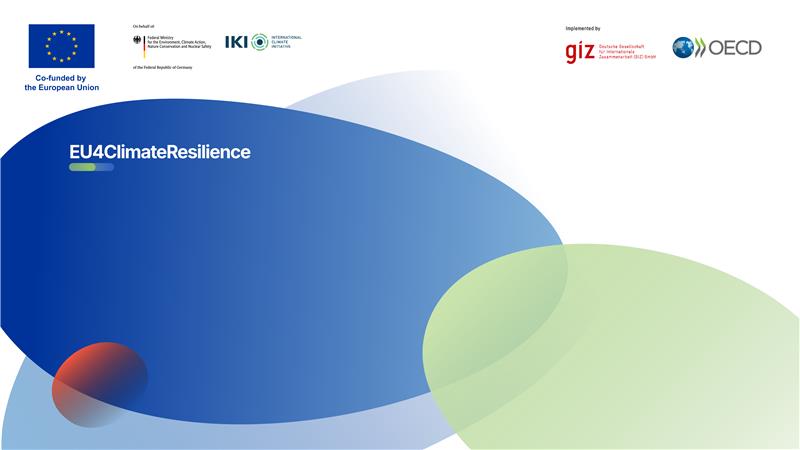EU4ClimateResilience is planning to support Dnipropetrovsk and Sumy regions, two frontline areas of Ukraine, to help them develop Regional Climate Change Adaptation Strategies. These are not just technical documents — they are essential tools for building a safer, more resilient future for communities already deeply affected by war.
In places where homes, infrastructure, and entire ways of life have been damaged or destroyed, it’s not enough to simply rebuild what was. These communities face a double burden: the impacts of war and the growing threats posed by climate change — from droughts and extreme heat to floods, storms, and water shortages. That’s why long-term, forward-looking planning is so important.
On August 1, 2025, a working meeting took place under the EU4ClimateResilience to plan next steps for this critical work. Representatives of Dnipropetrovsk and Sumy oblasts came together with experts from GIZ, the Covenant of Mayors, the APENA 3 project (implemented by Egis Ukraine), scientists, to discuss how to shape a vision for adapting these regions to climate challenges.

Why these matters
Ukraine is already experiencing the effects of climate change. Rising temperatures, more frequent and severe droughts, flash floods, heatwaves, and water scarcity are affecting agriculture, ecosystems, energy systems, and public health. The war has further amplified the country’s vulnerability — damaging water infrastructure, disrupting ecosystems, and increasing the risk of environmental disasters.
Climate risks do not stop at the frontline. They threaten food security, access to clean water, energy supply, and basic infrastructure — especially in frontline regions where capacity has been critically weakened. That’s why forward-looking, region-specific adaptation strategies are so important.
What was discussed
The meeting marked the first step in building these strategies. Participants focused on practical questions, such as:
— What are the main climate risks facing the regions now and in the future?
— What kind of data, research, and expertise are needed to plan effectively?
— How can we learn from other Ukrainian regions that have already developed climate adaptation plans?
— How can adaptation be integrated into existing regional strategies and recovery plans?
— How do we engage local communities and experts in the process?
The exchange of ideas, experiences, and expectations helped lay a strong foundation for planning the next stages of work.

A step toward EU integration
This work is also highly relevant at the national and international levels. By developing regional adaptation strategies, Ukraine is fulfilling its obligations under the national Climate Law, National adaptation to climate change and environmental safety strategy. Even more, this effort brings Ukraine closer to the European Union by aligning with EU climate legislation, the European Green Deal.
What’s next
Dnipropetrovsk and Sumy can become a blueprint for climate-smart recovery, with better understanding their needs and clear action plan. These regions’ experience in tackling the dual challenge of war and climate change will provide valuable lessons for others — showing how to rebuild not just with bricks and mortar, but with resilience, sustainability.
Because climate adaptation isn’t something abstract — it’s about ensuring that population has safe homes, farmers have water for their crops, even facing current and future climate risks.
EU4ClimateResilience: Decarbonisation and climate resilience in Eastern Partnership countries is a regional project co-financed by the European Union and the German Federal Ministry for the Environment, Climate Protection, Nature Conservation and Nuclear Safety (BMUKN) and implemented in Ukraine by the German government organisation Deutsche Gesellschaft für Internationale Zusammenarbeit (GIZ) GmbH in cooperation with the Organisation for Economic Co-operation and Development (OECD).
This post and its content are the sole responsibility of the Deutsche Gesellschaft für Internationale Zusammenarbeit (GIZ) GmbH and do not necessarily reflect the views of the European Union and BMUKN.


